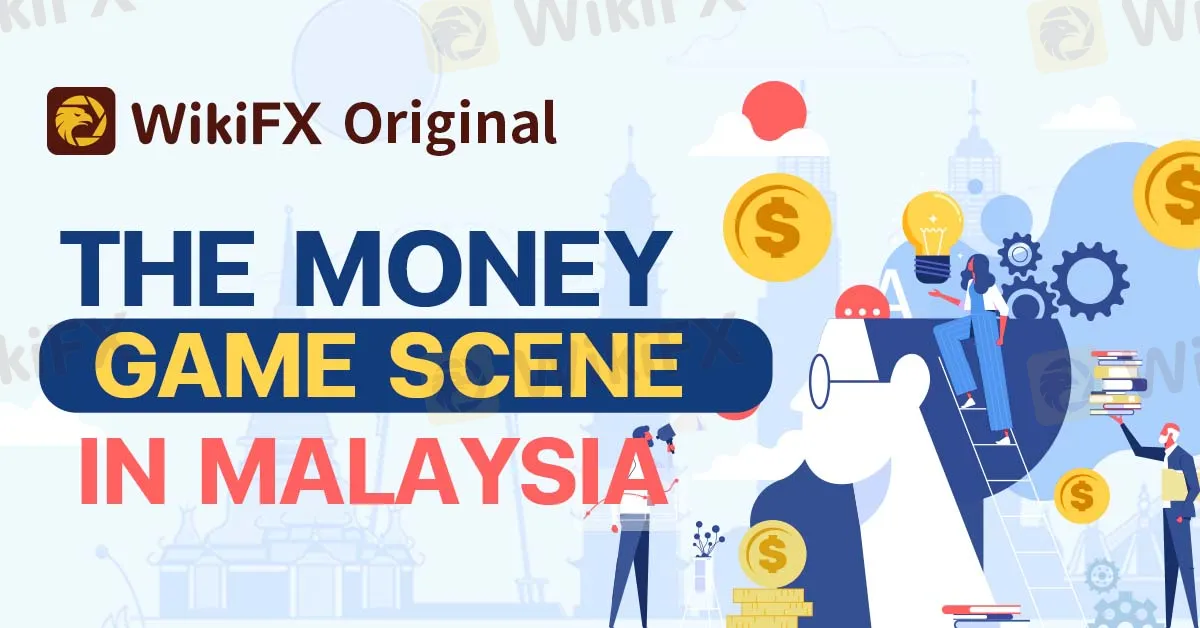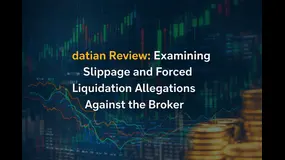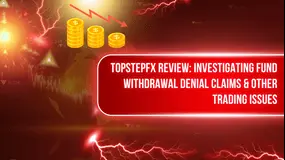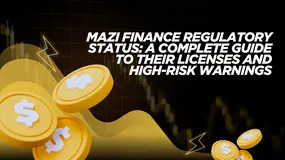WikiFX Valentine's Message | Trade Safely, Together Every Step of the Way
In the Forex Market, Trust Is Not a Promise — It’s Verified Through Safety, Transparency, and Support
简体中文
繁體中文
English
Pусский
日本語
ภาษาไทย
Tiếng Việt
Bahasa Indonesia
Español
हिन्दी
Filippiiniläinen
Français
Deutsch
Português
Türkçe
한국어
العربية
Abstract:"Money game" is another word for get-rich-quick schemes in which the operators trade in foreign currencies with money received from "investors."

Many individuals are tempted by the lucrative returns, and sometimes even “guaranteed”, which may reach as high as (or more) 10% per month passively when compared to the lacklustre gains from equities and fixed deposits in the face of surging inflation, which has raised the cost of living to new highs.
If left unchecked, this situation might have severe ramifications for the “players” in the game and the financial market.
Forex trading programmes became popular in 2015, initially in Penang and then throughout Malaysia. That's when the money game craze developed into a frenzy with downline recruitment.
The operators said they intended to help people and hosted seminars in several areas to convey their “sure-win” forex trading approach to the public.
Concerns about these schemes were frequently expressed in the mainstream media until early 2017, prompting authorities to increase their oversight as the money game bubbles rose dramatically.
Why do people invest in such schemes when they know they risk losing their hard-earned money?
Like a pyramid scheme, a money game pays a monthly referral fee to investors who secure a downline. The bigger the number of downlines you have, the higher the referral fee.
Furthermore, some get-rich-quick schemes have begun to enter the cryptocurrency space, with profits distributed in the form of cryptocurrencies.
The Securities Commission Malaysia regularly updates its alert list, warning the public about regulated activities performed without a license, such as dealing in securities, derivatives, fund management, and private retirement schemes; advising on corporate finance; and providing investment advice. Unfortunately, people are still drawn to get-rich-quick schemes as they disregard these constant warnings and reminders from the authorities.
Bank Negara advises the public to deal exclusively with licenced onshore banks and to seek clarification from the relevant authorities if they are unsure.
Illegal money games or investment schemes often refer to various illegal operations that offer investments with long-term rewards. According to Bank Negara, IDT happens when a fraudster promises the victim an investment opportunity and collects deposits with the promise of returns within a specified period, after which the principal amount of the investment will be reimbursed. The offer violates Section 137 of the Financial Services Act of 2013.
Meanwhile, an IFT is a purchase or sale of foreign currency in Malaysia by an individual or a company with anyone who is not a licenced onshore bank or has not obtained Bank Negara's approval under the Financial Services Act 2013 or the Islamic Financial Services Act 2013.
However, as long as there is greed and a thirst for high-risk investments, these forex trading operators will have the opportunity to extend their network. At the end of the day, it is up to the person whether or not to take the risk.
If you as an individual has ever been approached by a someone to open a forex account with overly handsome profit promises that seem too good to be true, always look up the broker in question. To do this easily, download the free WikiFX mobile application from Google App or App Store wherein you can get access to the profiles of over 40,000 brokers globally at your fingertips.


Avoid brokers that have a WikiScore that is lower than 6.0 and that operates without any valid licenses. No matter what the other party is promising you, there is a fishy reason behind for its lack of regulatory status and its underlying risk.

Dont ever take due diligence lightly as it may result in expensive regrets.
Disclaimer:
The views in this article only represent the author's personal views, and do not constitute investment advice on this platform. This platform does not guarantee the accuracy, completeness and timeliness of the information in the article, and will not be liable for any loss caused by the use of or reliance on the information in the article.

In the Forex Market, Trust Is Not a Promise — It’s Verified Through Safety, Transparency, and Support

Did you face losses due to a sudden change in the trading price on the datian platform? Were your transaction records deleted by the Hong Kong-based forex broker? Did the broker liquidate your trading account multiple times despite not reaching the stage where it mandated this move? Have you experienced heavy slippage on the trading platform? Concerned by these issues, traders have complained about the broker online. We will let you know of these with attached screenshots in this datian review article. Keep reading!

Did you face constant rejections of your fund withdrawal applications by TopstepFX? Have you been denied withdrawals in the name of hedging? Did you witness an account block without any clear explanation from the forex broker? There have been numerous user claims against TopstepFX regarding its withdrawals, payout delays and other issues. In the TopstepFX review article, we have investigated the top complaints against the US-based forex broker. Keep reading!

When choosing a broker, the first question is always about safety and legitimacy. Is my capital safe? For Mazi Finance, the answer is clear and worrying: Mazi Finance is an unregulated broker. While the company, MaziMatic Financial Services LTD, is registered in the offshore location of Saint Lucia, this business registration does not replace strong financial regulation from a top-level authority. Independent analysis from regulatory watchdogs shows a very low trust score, made worse by official warnings from government financial bodies and many user complaints about serious problems. This article provides a clear, fact-based analysis of the Mazi Finance regulation status. Our goal is to break down the facts and present the risks clearly, helping you make an informed decision and protect your capital.
